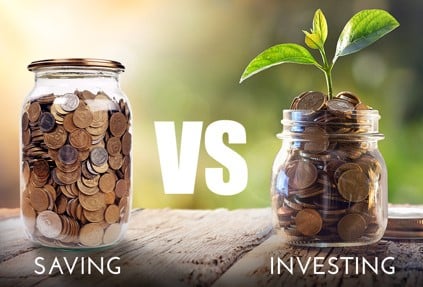We often meet with clients who are new to the world of investing and have little to no experience with the financial jargon we often throw around. These clients usually make apologies for not having knowledge of anything financial, and we quickly try to put them at ease. No need to be embarrassed! It is our job to help you understand these terms so you can be a more well-informed investor. This is the reason why I am starting this series of Investing 101 blogs. I’ll cover many topics that we’ve discussed with new clients and put them into simple terms so anyone can grasp the ideas.
The first place to start is to define what investing means. If you search the dictionary, you will find that to invest means to commit or give money in hopes of earning a financial return or profit.¹ The caveat with this is there are no guarantees. On one end, you may make a profit; on the other end, you may lose your money altogether, or achieve a result anywhere in between. It’s the risk that is inherent with all investments, although the level of risk differs depending upon the type of investment.
Investing is different from savings. To save means to set aside money, usually within a bank account.² When we open a savings account, the funds we deposit are FDIC insured, up to certain limits. One benefit of this type of account is that you won’t lose any of the money deposited, as compared to an investment, where worst-case, you could potentially lose the entire value. It is a conservative type of account that protects the money inside of it.
It’s important that everyone have a savings or emergency fund. The typical recommendation is, that for a single income household, you should have 6 months of expenses in savings. For a dual income household, you should have 3 months of expenses in savings. This is a general guide for people. Some people are comfortable with having less in their savings, while others may want a year or more of expenses in their savings accounts. It’s all about finding your comfort level.
In today’s environment, savings accounts earn very low rates of interest, therefore making it challenging to grow these account values very quickly. This is why many people choose to invest a portion of their money. The potential for a greater return is the incentive for people to take greater risks with their money. Investors just need to be mindful of their willingness to stomach large swings in their investment values. This is why working with a financial advisor is important. We can talk through various scenarios and discuss the pros and cons of different types of investments, making recommendations based upon your financial goals and risk tolerance. If you want to begin investing but are confused about your options, Hovis & Associates is here to help.
#WeAreHovis
#PlanwithHovis
¹ https://www.merriam-webster.com/dictionary/invest
² https://www.merriam-webster.com/dictionary/save

